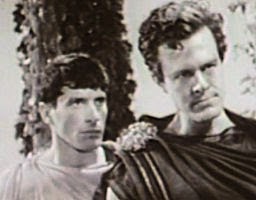A couple years ago I read
Camilla Läckberg's The Preacher. It was okay, but
I had issues with it. Last year I read
Läckberg's The Ice Princess.
I had issues with that book too.
 |
| Läckberg |
In spite of those issues, I picked up another book by
Läckberg from the bargain table at Barnes and Noble. I started reading it only to discover that it was the third book of a series. So I found the second book at Half Price Books and the first, in paperback, for full price at Barnes and Noble. I didn't read them in order. I read the second one first, then the third one, and then the first.
It was okay to do that because the links between the stories are minimal and the continuing characters are really well developed and distinctive. Patrik Hedstrom is a small town detective and his girl friend, Erica Falck, a writer, are the two main characters in each of the novels. They're accompanied by various family members, friends, and colleagues. All of those people have lives that compete for attention with the mysteries Läckberg dreams up.
And I don't have the reservations about these books that I had about
Läckberg's first two novels. She manages two story lines in each of the books that only really merge near the end of the book, but she isn't playing with the timeline and the sequence of the story telling.
Okay, the first book in the series is
The Stonecutter. One of the stories here begins in the early 1920s and revolves around a skilled quarryman, an upper class girl, their unhappy marriage, and their twin sons. The other story concerns the murder of a very young child just as Patrik and Erica are expecting their first child. Of course there are other side stories, but they are not intrusive.
The second book has the English title
The Stranger. (Camus fans be patient. This is not related to the story or the philosophy in that stellar French exposition of existentialism.) A literal translation of the Swedish title is
The Jinx. Patrik and Erica get married and Erica is overwhelmed by motherhood and depression. In the meantime, a local woman dies in an auto accident that looks like murder and a cast member of the Swedish version of
Big Brother, filming in town, is found dead. In a small town, Patrik finds himself directly involved in investigating both murders, and feeling guilty about neglecting the new baby and his stressed wife. The second story line in this books is very opaque and dream like. I ignored most of it.
The third book is
The Hidden Child. Patrik is on paternity leave, but he has real trouble not pushing the stroller and the baby past the police department and not responding to invitations to visit for coffee or a quick run to a crime scene. Erika has returned to her writing, but she's trying to do most of it in her home office. While organizing things in that office she finds a Nazi medal among her late mother's belongings. She tries to find out what it means and how a very anti-Nazi Swede ended up with such a thing. Well, the history teacher she asks about it is killed. The secondary story is set in World War II Sweden and revolves around the murdered school teacher and his small group of friends who were just a bit too young to be soldiers in the 1940s. These two stories work together much better than the stories in the earlier books.
But...
It was such a pleasure to read books that I wanted to read and finish (even though that would mean I'd be done). That was true for all three books. I can say that the characterizations were very well done. I can't tell you whether narration, or dialogue, or cause and effect moved the stories on, because
Läckberg used all three, but none were obviously prominent. Except for the vague and dream like secondary story in
The Stranger, the elements of the books worked well together.
I'd wondered if
Läckberg's first two books were written according to a recipe that didn't quite work. If
Läckberg adjusted her recipe for these books, she's done it very well. These 400-500 page novels were never daunting or too much. I enjoyed nearly everything.
I urge you to give them a try. I'm confident you don't have to be Swedish or a Minnesotan to enjoy them.
Have you read any of
Läckberg's novels? What did you think of them?
Write. Tell this little bit of the world what you think.









































